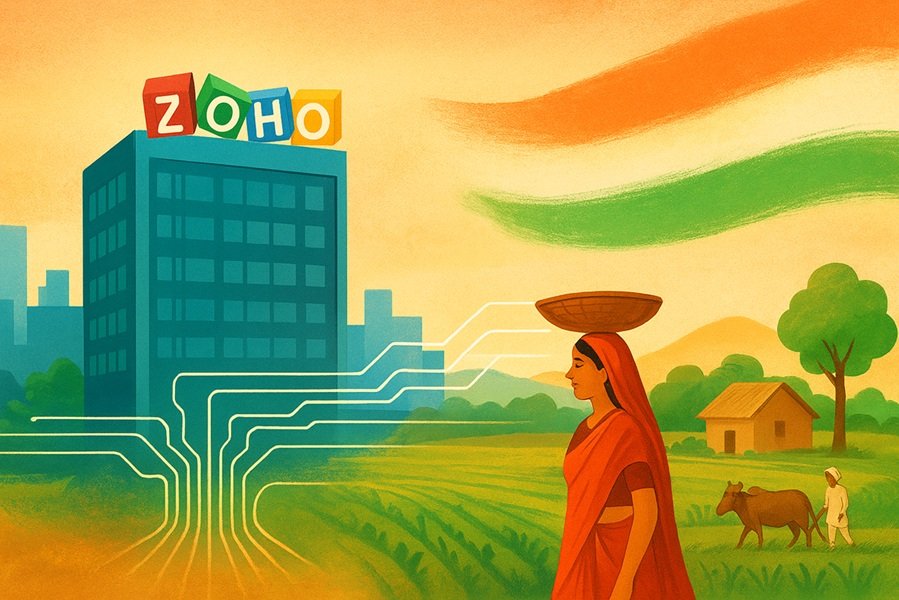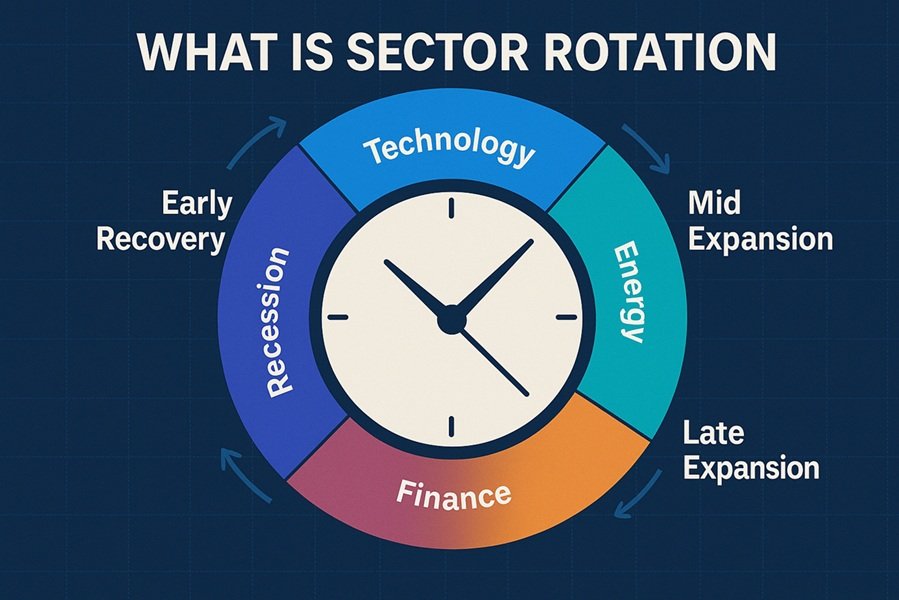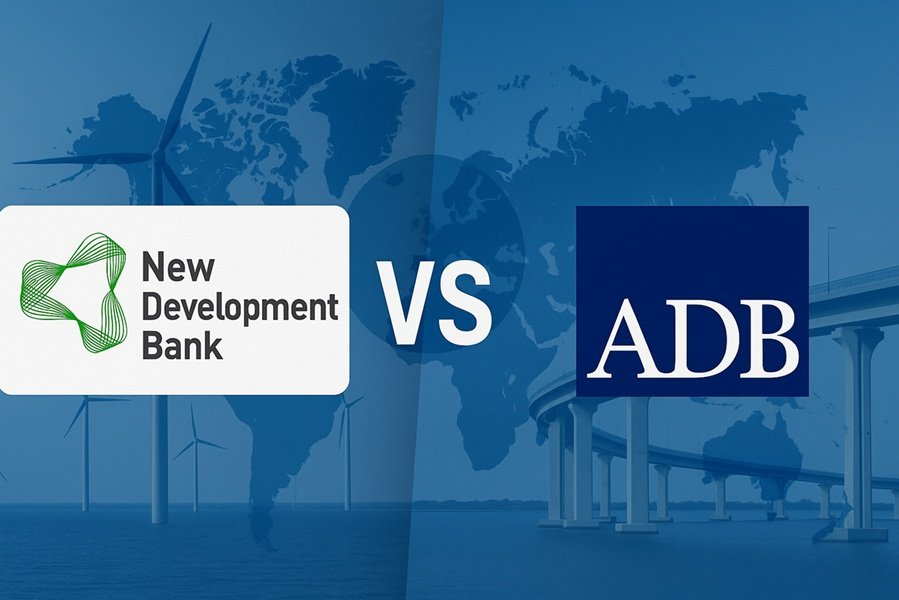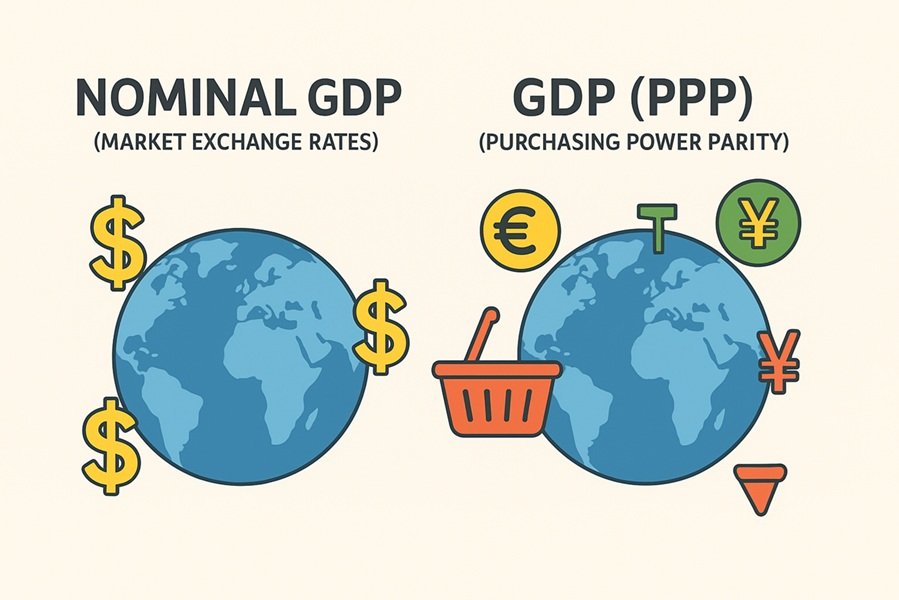
Introduction: Building the Atmanirbhar Vision
When Prime Minister Narendra Modi announced the Atmanirbhar Bharat Abhiyan (Self-Reliant India Mission), the message was clear — India must not only consume technology but also create it. In a global ecosystem dominated by Silicon Valley giants, one Indian company has silently but powerfully shown what true self-reliance looks like in action: Zoho Corporation.
Founded in 1996 by Sridhar Vembu and Tony Thomas, Zoho is a Chennai-based global software company that offers over 55+ cloud-based applications across business, productivity, and collaboration domains. What makes Zoho extraordinary is not just its success, but its commitment to Indian values, local employment, and technological independence — the true essence of Atmanirbhar Bharat.
Zoho: India’s Global Tech Powerhouse
1. From Chennai to the World
Zoho was started in Chennai long before “startup culture” became mainstream in India. Competing with global giants like Microsoft, Google, and Salesforce, Zoho has built a reputation for world-class software made in India.
Today, Zoho serves over 100 million users across 180+ countries, proving that Indian innovation can match — and often surpass — global standards.
2. Entirely Bootstrapped and Profitable
Unlike most tech companies that rely on venture capital, Zoho remains entirely bootstrapped — it has never taken a single rupee from external investors. This financial independence is at the core of its self-reliant philosophy.
By maintaining control over its operations and vision, Zoho ensures sustainable growth, employee welfare, and freedom from foreign influence.
3. Made in India, for the World
Every line of code, every product update, and every support service originates from Zoho’s offices in India. From CRM to mail, accounting, analytics, and HR tools, Zoho products are conceived, developed, and supported entirely within India — truly reflecting Vocal for Local.
Innovation Rooted in Indian Ethos
1. Rural Revolution: Zoho’s Tenkasi Model
Zoho’s founder, Sridhar Vembu, believes that innovation doesn’t belong only to cities. In 2011, he set up Zoho’s R&D center in Tenkasi, a rural town in Tamil Nadu.
This move was revolutionary — it created high-paying tech jobs in non-urban regions, bridged the rural-urban divide, and became a model for rural digital empowerment.
Today, Zoho runs multiple rural offices across India, proving that world-class technology can emerge from India’s heartland, not just its metros.
2. Training and Employing Local Talent
Instead of relying on expensive degrees, Zoho trains young people through the Zoho Schools of Learning, an in-house initiative launched in 2004. These schools recruit students directly after Class 12, train them in programming and communication, and offer them jobs within the company.
This model challenges the conventional education system and empowers youth through skill-based learning and employment, embodying the Skill India and Digital India initiatives.
Data Sovereignty and Digital Independence
In an age when most companies depend on foreign servers and software ecosystems, Zoho stands out with its commitment to data privacy and sovereignty.
- Zoho hosts user data on its own data centers, ensuring no dependency on Big Tech cloud providers.
- It develops and maintains its own software stack, databases, and security infrastructure.
- Zoho has a strict no-advertising, no-tracking policy, making it a privacy-first alternative to Google Workspace and Microsoft 365.
This independence gives India a strong foothold in the digital sovereignty movement — a crucial step toward Atmanirbhar Digital Bharat.
Supporting Indian Businesses and MSMEs
Zoho plays a vital role in empowering Indian entrepreneurs, startups, and MSMEs through affordable and scalable software solutions.
Its products like Zoho CRM, Zoho Books, Zoho Mail, and Zoho Workplace offer enterprise-grade features at accessible prices, helping small Indian businesses digitize operations without depending on costly foreign platforms.
During the COVID-19 pandemic, Zoho also launched initiatives like Zoho Remotely (a remote work suite) and Zoho Creator for MSMEs, supporting local businesses to stay operational online.
Sustainability and Ethical Business Practices
Sridhar Vembu has often emphasized that business success should align with social responsibility and environmental balance.
- Zoho avoids unnecessary consumerism and focuses on long-term sustainability.
- It invests in agriculture, rural education, and local employment.
- The company maintains a frugal yet powerful business philosophy — prioritizing community development over aggressive expansion.
This approach demonstrates that true Atmanirbhar Bharat is not just about economic independence but about ethical, sustainable progress.
How Zoho Embodies “Atmanirbhar Bharat”
| Aspect | Zoho’s Contribution | Alignment with Atmanirbhar Bharat |
|---|---|---|
| Innovation | 100% in-house software development | Promotes Indian-made tech |
| Employment | Rural job creation & Zoho Schools | Skill India & Rural Empowerment |
| Independence | No foreign funding | Economic Self-Reliance |
| Data Privacy | Own servers & zero ad model | Digital Sovereignty |
| Global Reach | 100+ million global users | Brand India recognition |
| Affordability | Budget-friendly SaaS tools for MSMEs | Empowering Indian businesses |
The Road Ahead: India’s Global SaaS Future
Zoho’s journey shows that India can lead the global Software-as-a-Service (SaaS) revolution. By combining technical excellence with ethical governance, Zoho demonstrates that true self-reliance is not isolation, but innovation.
As more Indian startups embrace indigenous development, data protection, and inclusive employment, Zoho’s model could serve as a blueprint for Digital Atmanirbhar Bharat — a future where India builds, scales, and leads with its own technology.
Conclusion: Zoho — A Living Example of Self-Reliant India
Zoho Corporation is more than a business success story — it is the embodiment of India’s self-reliant vision. From developing indigenous software to empowering rural youth and protecting user data, Zoho reflects the core principles of Atmanirbhar Bharat: innovation, inclusivity, and independence.
As India continues to push toward technological sovereignty, Zoho’s journey stands as a powerful inspiration — showing that the dream of a truly self-reliant digital India is already becoming a reality.








